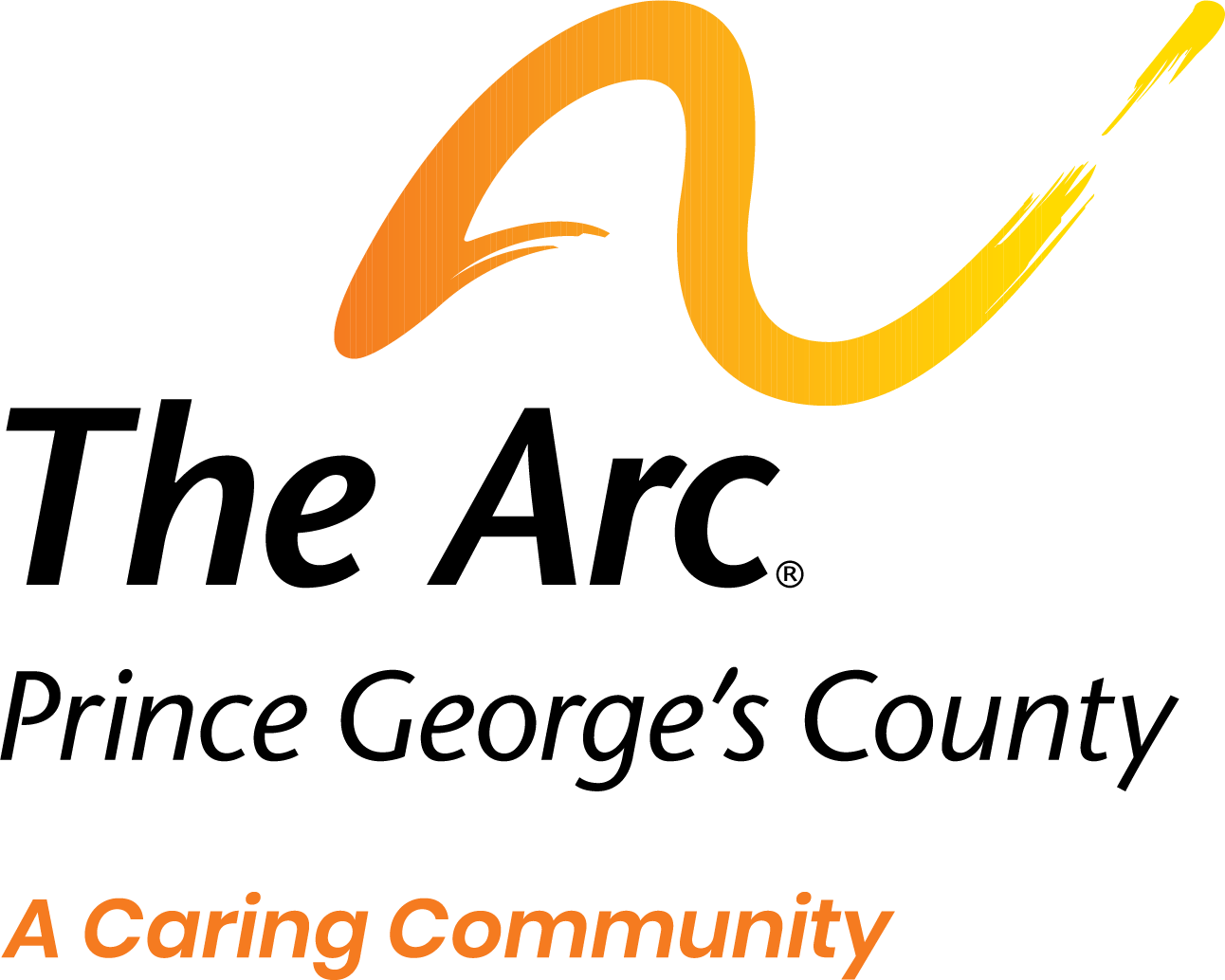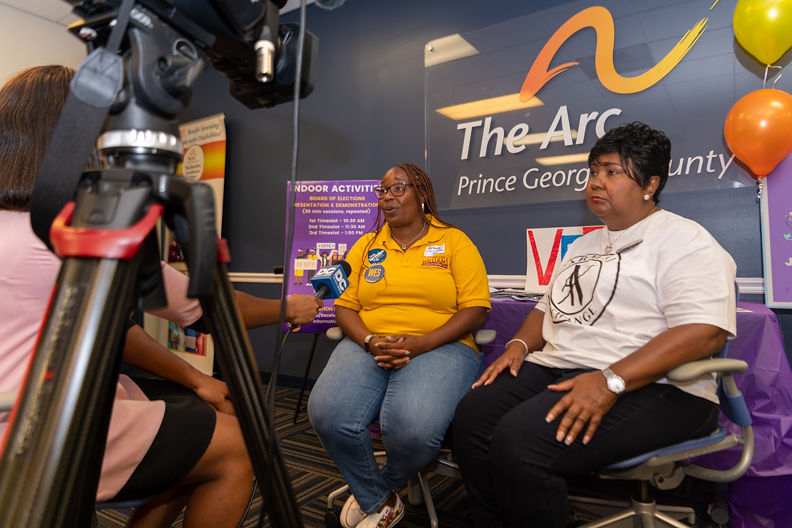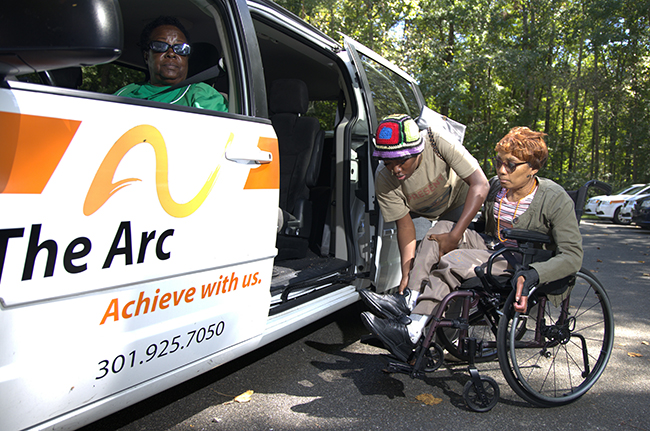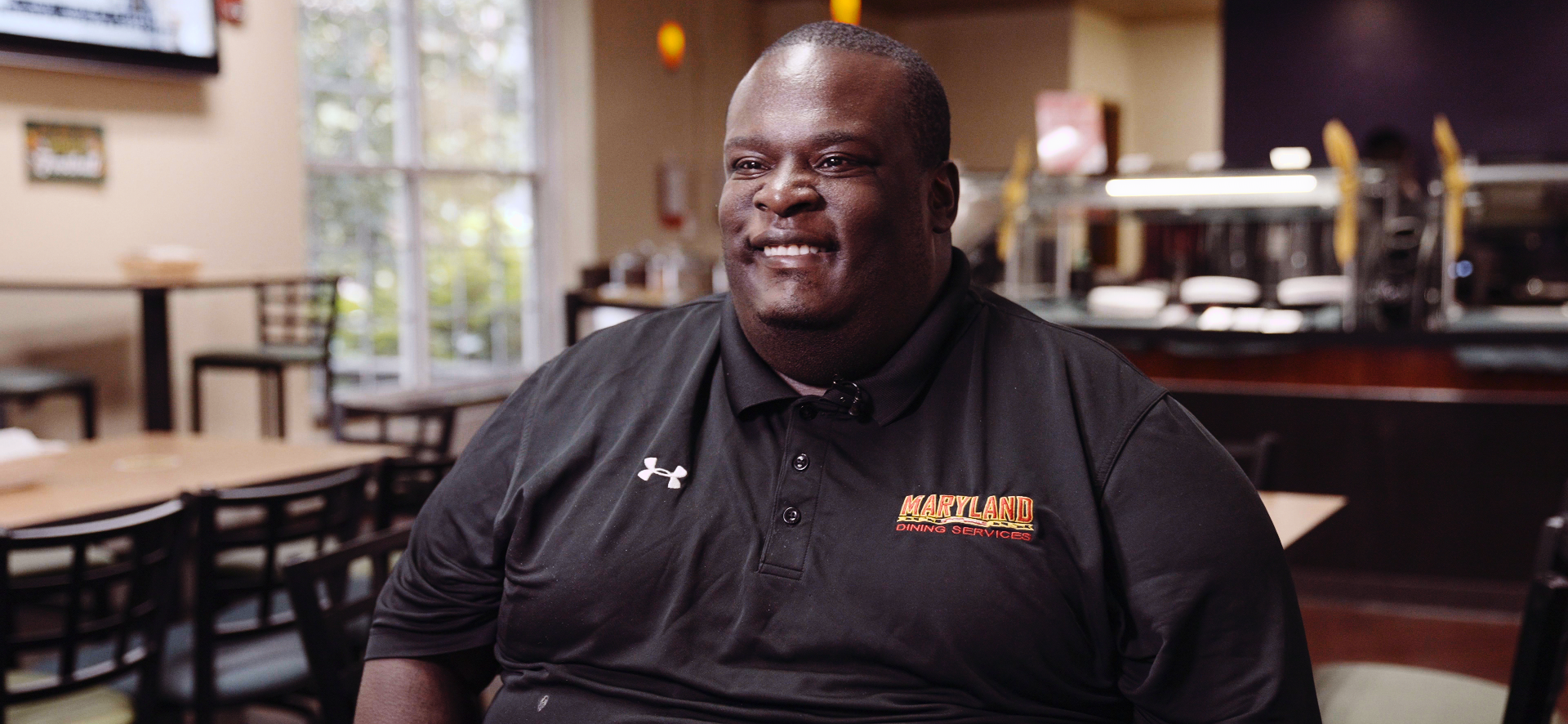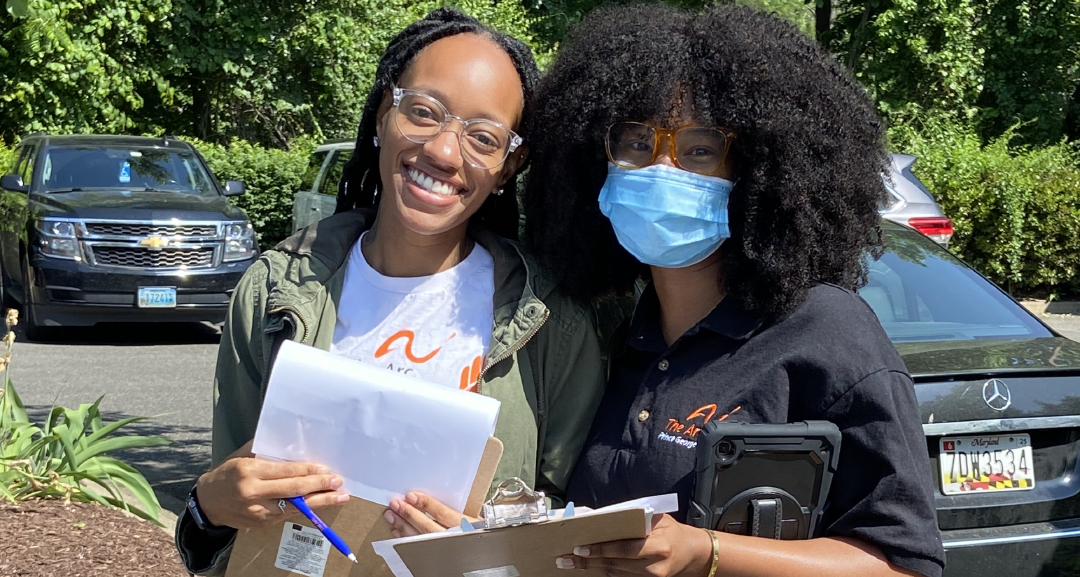
Plan for the Future of Your Loved Ones with Developmental Disabilities
The Arc works with families to plan for the future of their loved ones. Planning for the future is important for everyone, but for families of people with developmental disabilities, planning is essential. Who will take care of your loved one when you are gone? While it is difficult to look ahead, the reality of today is that there are no guarantees for tomorrow. Planning now is crucial to secure the future a family envisions for a loved one with a disability.
Many government-funded programs that people with disabilities receive are based on income and assets. Inheritances over $2,000 often make people with disabilities ineligible for necessary government supports. Planning is important for your family member’s future. Create a peace of mind about your child’s future. Do not delay!
Future Planning Resources
By Their Side
800-323-9407
www.bytheirside.org
Provides futures planning assistance to families and pre-arranged service monitoring for individuals with developmental disabilities upon the death or disability of the parent.
Maryland Developmental Disabilities Council
410-333-3688
800-305-6441
www.md-council.org
Offers free to families Planning Now: A Future & Estate Planning Guide for Parents of Children and Adults with Developmental Disabilities.
The National Information Center for Children and Youth with Disabilities
800-695-0285
www.nichcy.org
Offers Estate Planning information.
Note: These providers are not endorsed or approved by The Arc of Prince George’s County. This contact information is provided as a service; families must determine for themselves if these providers are able to support the needs of their family member(s).
Your Title Goes Here
Your content goes here. Edit or remove this text inline or in the module Content settings. You can also style every aspect of this content in the module Design settings and even apply custom CSS to this text in the module Advanced settings.
Wills
Wills
What is a will?
Your will is a summary of instructions and decisions about issues that arise after your death.
What should be included in my will if I have a family member with a disability?
Your will should clearly state who is to take guardianship over your family member if guardianship is necessary. Your will should include provisions necessary to avoid excessive taxes. You should also state how you would like assets left to your family member with a disability.
What are the problems associated with assets left to my family member with a disability?
Inheritances over $2,000 will make your family member ineligible for government-funded supports. Your family member will have to use the money for their daily living needs, and will not be able to use the money in the way you intended such as to improve their quality of life, buy assistive technology, and visit relatives.
If a will is not in place, assets will be divided between your living relatives when you die. Your family member with special needs may receive assets that make him or her ineligible for funding. The creation of a will is vital to the future well-being of your family member.
Choosing to disinherit your family member with special needs, with hopes of a sibling or other family member providing for his or her care has high risks. The funds may not be used or divided as you intended. Future deaths or divorce may result in the money exiting your family, leaving your family member with a disability with nothing.
How can I leave assets to my family member with a disability?
One of the best ways to ensure proper provisions for your family member with a disability is to create a Supplemental Needs Trust.
How do I create a will?
The will must be a written document, and must be drafted under “sound mind”. Two or three witnesses who do not have any interest in the estate must sign the will. Contact an attorney to help you draft your will. Different states have different laws; make sure your attorney is familiar with the laws in the state in which you reside, as well as the state in which your family member with a disability resides.
Special Needs Trusts
Special Needs Trusts
Planning for the future is important for everyone, but for families of people with developmental disabilities, planning is essential.
What is a Supplemental Needs Trust?
A Supplemental Needs Trust (sometimes called a Special Needs Trust) is a legal document that provides a way for you to place a gift or inheritance into a fund rather than give it directly to your family member. This fund can be used to improve quality of life and avoid the loss of benefits.
Should I create a Supplemental Needs Trust for my family member with a disability?
Some government benefits such as SSI and Medicaid are given based on income and assets. If a person receiving this type of government funding directly receives money or other assets through a gift or inheritance, these benefits can be lost. When this occurs, the person must spend the assets until they are below the asset limit and then re-apply for benefits. Because people with developmental disabilities often have high medical and housing expenses, the additional money is spent very quickly.
A gift paid to a supplemental needs trust rather than an individual can avoid the loss of benefits. The gift can then be used for assistive technology that insurance does not cover, personal needs, recreation, and other resources that improve the person’s quality of life.
How do I create a Supplemental Needs Trust?
Work with an estate-planning attorney, and appoint someone you know and trust as trustee. You may serve as trustee of your family member’s finances, but in the event of your death, the trustee will begin managing and supervising the finances. You can provide detailed instructions to direct your trustees’ activities, which legally must be followed.
Pooled Trusts
Pooled Trusts
What is a Pooled Trust?
In a pooled trust the resources of many beneficiaries are combined and managed by a non-profit association. Unlike individual disability trusts, which may be created only for those under age 65, pooled trusts may be for beneficiaries of any age and may be created by the beneficiary herself. In addition, at the beneficiary’s death the state does not have to be repaid for its Medicaid expenses on her behalf as long as the funds are retained in the trust for the benefit of other disabled beneficiaries.
Should I create a Pooled Trust for my family member with a disability?
Some government benefits such as SSI and Medicaid are given based on income and assets. If a person receiving this type of government funding directly receives money or other assets through a gift or inheritance, these benefits can be lost. When this occurs, the person must spend the assets until they are below the asset limit and then re-apply for benefits. Because people with developmental disabilities often have high medical and housing expenses, the additional money is spent very quickly.
A gift put into a pooled trust rather than given to an individual can avoid the loss of benefits. The gift can then be used for assistive technology that insurance does not cover, personal needs, recreation, and other resources that improve the person’s quality of life.
How do I create a Pooled Trust?
Work with an estate-planning attorney, and appoint someone you know and trust as trustee. You may serve as trustee of your family member’s finances, but in the event of your death, the trustee will begin managing and supervising the finances. You can provide detailed instructions to direct your trustees’ activities, which legally must be followed.
Guardianship
Guardianship
What is guardianship?
Guardianship is the legal power to direct and control another person’s life.
Types of guardianship:
- A guardian of the person can generally make personal decisions such as where a person will live, what types of health care a person will receive, and where the person will go to school or work.
- A guardian of the property determines how a person’s money is invested and spent.
- Full guardianship includes the powers and responsibilities of decision making over both personal and property matters. This is the most restrictive type of guardianship.
- Limited guardianship only allows the guardian authority in specifically defined matters.
- Temporary guardianship is granted to give authority to handle a specific matter. Once the matter is resolved, guardianship is removed.
When does an adult with a disability need a guardian?
At age 18, people with developmental disabilities are adults, and receive all the rights and responsibilities associated with adult status. An adult may need a guardian when a decision must be made related to a person’s assets or well-being, and the person is unable to make the decision for himself or herself. Guardianship may be an option if all other alternatives have been explored—it should always be the last option. Adults should receive the most effective, but the least intrusive form of support, assistance, or protection when they are unable to care for themselves or their assets.
How do I apply for guardianship?
To obtain guardianship of an adult, contact an attorney who will prepare a petition for the civil domestic court of Prince George’s County. The petition must state why the petitioner is seeking guardianship, the relationship between the petitioner and the person with a disability, and what kinds of decisions the petitioner wants to make. The petition must also include written statements from two physicians that describe the person’s disability. The petition must be given to the civil domestic court. The court will then assign representation for the adult with a disability. After hearing all evidence, a judge will rule on whether the individual, in fact, needs guardianship and, if so, will establish what form of guardianship. Contact the Prince George’s County Civil Domestic Court at 301-952-3322.
What is public guardianship?
If a guardian is necessary and no family member or friend is willing to take on the responsibility, the court will appoint a public guardian. Information about the Adult Public Guardianship Program in the state of Maryland can be found at http://www.dhr.state.md.us/how/srvadult/guardian.htm.
What are the responsibilities of a guardian?
The guardian must make decisions that are in the best interest of the person with a disability. The guardian must also keep records of all actions taken in his or her role as a guardian. After guardianship is established, annual reports must be filed documenting decisions made and spending of funds.
Alternatives to Guardianship
Alternatives to Guardianship
Guardianship should be the last option since it is the most restrictive choice. Here are a few less restrictive options:
Representative Payee:
Government agencies may sometimes administer benefits to a representative who receives, distributes, and accounts for benefits if the person with a disability cannot manage the benefit check by himself or herself.
Joint Property Ownership:
Placing property under the names of a family member with a disability and another trusted person could protect the property from being handled inappropriately.
Trust Accounts:
Placing money in a trust account restricts its use and protects the money from mismanagement.
Surrogate decision-making:
A surrogate decision maker can consent to medical care if the person is incompetent of making his or her own decisions, however, the surrogate may not authorize treatment if the patient is actively refusing treatment.
Power of Attorney:
A power of attorney is a legal document that gives a representative the ability to manage assets and financial affairs.
The Arc can help you find the options that are best for your family.
Your Title Goes Here
Your content goes here. Edit or remove this text inline or in the module Content settings. You can also style every aspect of this content in the module Design settings and even apply custom CSS to this text in the module Advanced settings.
Alternatives to Guardianship
Alternatives to Guardianship
Guardianship should be the last option since it is the most restrictive choice. Here are a few less restrictive options:
Representative Payee:
Government agencies may sometimes administer benefits to a representative who receives, distributes, and accounts for benefits if the person with a disability cannot manage the benefit check by himself or herself.
Joint Property Ownership:
Placing property under the names of a family member with a disability and another trusted person could protect the property from being handled inappropriately.
Trust Accounts:
Placing money in a trust account restricts its use and protects the money from mismanagement.
Surrogate decision-making:
A surrogate decision maker can consent to medical care if the person is incompetent of making his or her own decisions, however, the surrogate may not authorize treatment if the patient is actively refusing treatment.
Power of Attorney:
A power of attorney is a legal document that gives a representative the ability to manage assets and financial affairs.
The Arc can help you find the options that are best for your family.
Letter of Intent
Letter of Intent
What is a letter of intent?
The letter of intent is a document of your preferences for the care of your family member with a disability. It is a personal letter that guides your family member’s future caregiver. The letter is not a legally binding document.
What should be included in a letter of intent?
The guidelines should enhance your family member’s growth and independence. Include your family member’s full name, date and place of birth, and social security number. Include information about the type of day programs, employment, and living arrangements you prefer for your family member. Also include your family member’s likes and dislikes, habits, routines, religious preferences, and levels of independence. Leave information about government benefits for your family member, and list agencies like The Arc that the future caregiver should contact for help and advice.
How do I write a letter of intent?
Since the letter of intent is not a legally binding document, you may write your letter in any manner you choose. Your letter of intent should not contradict your will. Have your attorney read over your letter to ensure it matches your wishes left in your will.
What do I do with the letter of intent?
Place a copy of your letter of intent with your will and keep a copy for yourself. Also, give copies of your letter to people who will be responsible for making decisions about your family member.
Click here to download a Letter of Intent template
Legal Support and Resources
Legal Support and Resources
Legal Support & Future Planning Resources
John Dondero
301-587-3434
8720 Georgia Avenue, Suite 704, Silver Spring, MD 20910
Lawyer who assists families with trusts and other issues related to futures planning.
Elizabeth Green
Franklin & Prokopik
410-230-3627
Two North Charles Street, Suite 600, Baltimore, MD 21201
egreen@fandpnet.com
Lawyer who assists families with trusts and other issues related to futures planning.
Christine Hubbard
410-798-4533
1069 Double Gate Road, Davidsonville, MD 21035
dcgehubbard@aol.com
Lawyer who assists families with trusts and other issues related to futures planning.
Nicole Livingston / Coleen Prosser
Sinclair Prosser Law, LLC
410-573-4818
900 Bestgate Road, Suuite 103, Annapolis, MD 21401
Lawyer who assists families with trusts and other issues related to futures planning.
Tia Marsili
Director of Trusts, The Arc of NOVA
703-532-3214, ext. 115
Assists families with setting up trusts.
Legal Aid Bureau, Inc
301-927-6800
www.mdlab.org
A private, non-profit, multi-funded law firm providing free legal services in civil cases to people with low-incomes statewide.
Maryland Disability Law Center (MDLC)
410-727-6352
800-870-6362
www.mdlclaw.org
A public interest law firm that offers free legal advice and advocates for children and adults with disabilities.
Maryland Volunteer Lawyer’s Service
410-547-6357
800-510-0050
www.mvlslaw.org
Offers council on consumer disputes, criminal record expungement, landlord-tenant disputes, name changes re: birth certificate, domestic violence, family law, power of attorney, etc.
Special Needs, Alternative Plans
410-727-5335
Patty Wolfe
Walk families through the financial planning process helping them to create practical, secure plans for the future of a family member with disabilities.
Financial Planning
Matthew Klein, CMFC
Prudential Financial
1919 Gallows Road, Suite 100
Vienna, VA 22182
Office: 703 – 336 – 5310 ext. 3025
matthew.klein@prudential.com
Financial Planning
James Allotey
MetLife
3700 O’Donnell Street
Baltimore, MD 21224
443-957-6138
jallotey@metlife.com
Financial Planning
Melanie L. Shanty CRPC
1300 York Road
Suite 200
Lutherville, MD 21093
melanie.shanty@lfg.com
Note: These providers are not endorsed or approved by The Arc of Prince George’s County. This contact information is provided as a service; families must determine for themselves if these providers are able to support the needs of their family member(s).
The Able Act
CMS Able Account Guidance
More Resources
Click here to view our Take Control Summit August 2019 – August 2020 Resource Guide. This future and financial care resource guide provides information on products, financial plans, and services available for you to care for your loved ones. The Arc Prince George’s County is committed to being your life partner to help you live your best life on purpose.
Click here to view the Maryland Developmental Disabilities Council’s guide: Planning Now: A Futures and Estate Planning Guide for Parents of Children and Adults with Developmental Disabilities.
The Arc of the U.S. publishes Future Planning Resources, a list of books, agencies and other resources that address financial and legal planning. Click here to view a copy.
